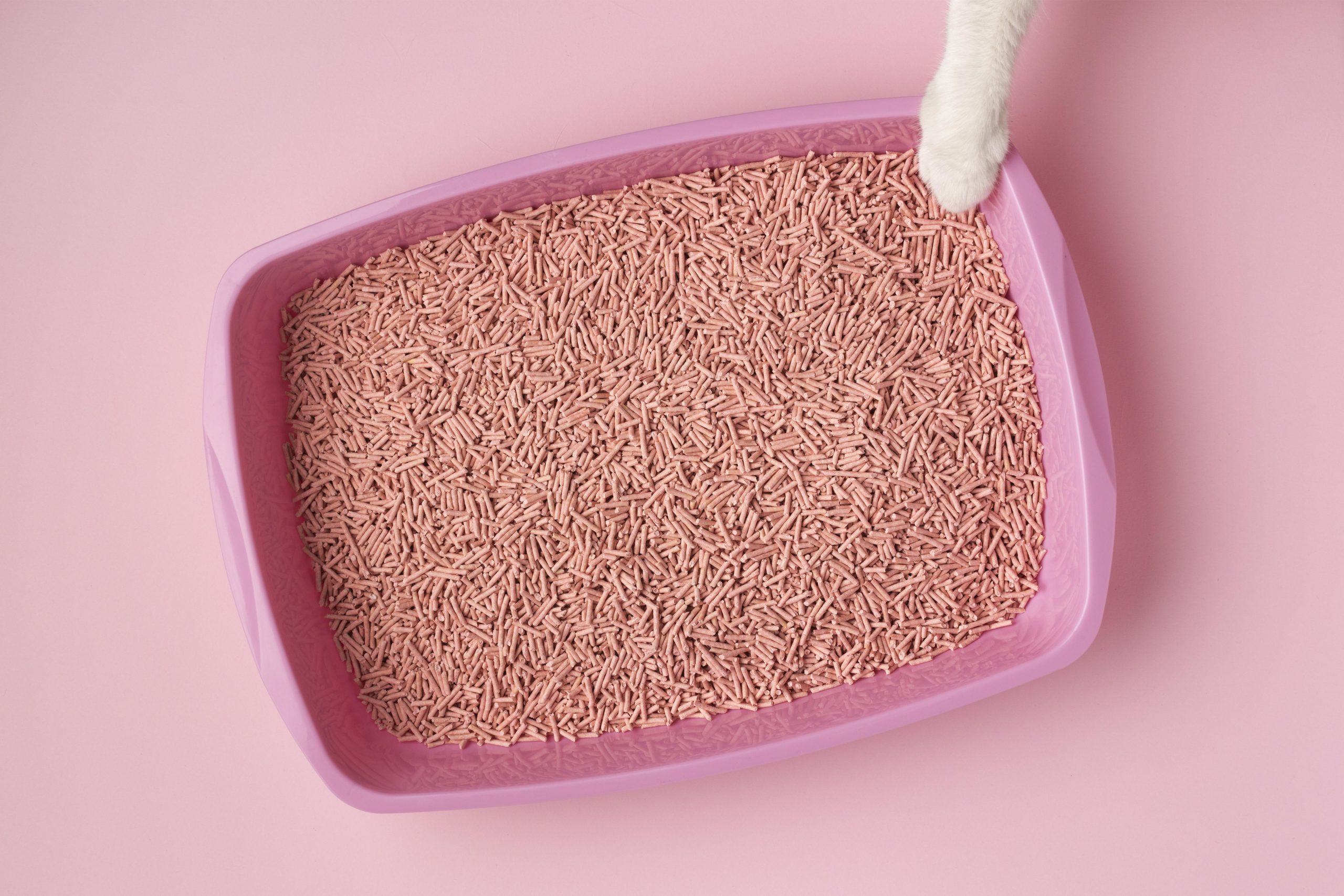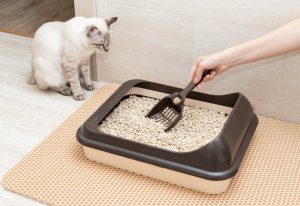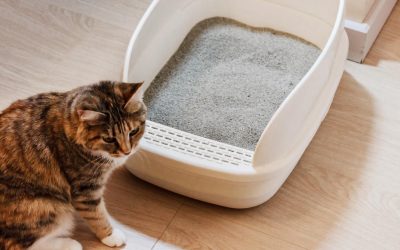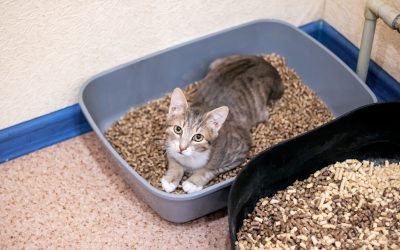Why Is My Cat Peeing Outside the Litter Box?

Understanding Normal Litter Box Behavior
Cats are generally very clean animals and have a natural instinct to bury their waste. Healthy cats typically use the litter box consistently, providing a safe and comfortable place to eliminate. However, when a cat starts to avoid the litter box, it’s a clear sign that something may be amiss.
A cat’s litter box habits can be influenced by various factors, including age, health, and environmental conditions. Kittens, for example, may need more time and training to learn proper litter box etiquette, while older cats may struggle with physical limitations that make it difficult to access the box.
Medical Causes for Litter Box Avoidance
One of the first things to consider when a cat is peeing outside the litter box is the possibility of an underlying medical condition. Several common health issues can contribute to litter box avoidance, and it’s crucial to rule these out before addressing any behavioral concerns.
Urinary Tract Infections (UTIs) and the Cost of Treating It
One of the most common medical reasons for litter box avoidance is a urinary tract infection (UTI). UTIs can cause discomfort and pain when urinating, leading a cat to associate the litter box with this unpleasant experience. The cost of treating a UTI can vary but typically ranges from $150 to several thousand dollars, depending on the severity of the infection and the treatment required.
Feline Arthritis and Mobility Issues and the Cost of Treating It
Feline arthritis and other mobility issues can also make it difficult for a cat to access and use the litter box comfortably. As cats age, they may experience joint pain and stiffness, making it challenging to get in and out of the litter box. The average cost of diagnosis and treatment for feline arthritis is 255$ per month, depending on the severity of the condition and the treatment plan. However, specialty treatment/procedure/ongoing treatments range from $1,200 to $2,500 (femoral head osteotomy surgery).
Feline Diabetes and Kidney Disease and the Cost of Treating It
Feline diabetes and kidney disease can also contribute to litter box avoidance. These conditions can lead to increased thirst and urination, making it difficult for a cat to use the litter box reliably. The cost of treating feline diabetes can range from $30 to $100 per month, while the cost of treating feline kidney disease can vary widely, from $2000 to $4000, depending on the severity of the condition.
If your cat exhibits litter box avoidance behavior, it’s recommended that you schedule a veterinary appointment to rule out any underlying medical issues. Your veterinarian can provide a comprehensive assessment, recommend the appropriate treatment plan to address the problem and get your cat back to using the litter box consistently.
Can Odie Pet Insurance Provide Coverage for Such an Investment?
Depending on the specific policy, pet insurance can cover the diagnosis, treatment, and management of cat diseases.
Reimbursement
This method is the most common for pet insurance companies. You pay out of pocket for the veterinarian bill, and then the insurance company reimburses you for what’s covered under the insurance plan. The steps look like this.
- You pay the vet bill after your cat’s visit.
- You fill out the pet insurance claim form.
- Submit the claim form and other required documentation to the insurer.
- After the claim is approved, you will be reimbursed for eligible expenses.
What Does Odie Pet Insurance Cover?
Pet insurance covers various veterinary expenses, providing financial protection and peace of mind for pet owners. Here are the details of the coverage options offered by Odie Pet Insurance:
Illness & Injury Plan
The Illness & Injury Plan is an all-inclusive insurance plan designed to cover a wide range of medical needs for your pet. This plan includes comprehensive coverage for various illnesses, injuries, and veterinary services. Some of the covered items include:
- Veterinary exams and consultations
- Diagnostics (e.g., X-rays, lab tests)
- Prescribed medications
- Surgeries and hospitalization
- Rehabilitation, acupuncture, or chiropractic treatments
- Medically necessary supplies
- Euthanasia and cremation
The Wellness Plan
The Wellness Plan is a monthly membership that focuses on preventive care and covers routine veterinary services.
- Provides reimbursements for routine care items such as wellness visits (exams and vaccines), testing and parasite prevention, dental cleanings and at-home dental care, vitamins, supplements, and more.
- Through Odie’s partnership with Petivity, a leader in smart pet products and proactive care, Wellness Plan members can also receive reimbursements for Petivity devices and health kits, as well as eligible Purina food and supplements.
- Total reimbursement up to $700 per year.
Behavioral Reasons for Litter Box Avoidance
In addition to medical causes, several behavioral factors can cause a cat to avoid using their litter box. Understanding these behavioral triggers can help address the issue and prevent future occurrences.
Litter Box Placement and Type
The location and type of litter box can significantly impact a cat’s willingness to use it. Cats prefer a quiet, easily accessible, and private spot to eliminate. If the litter box is placed in a high-traffic area or is difficult for your cat to access, they may choose to relieve themselves elsewhere.
Additionally, the type of litter used can also play a role. Cats have individual preferences when it comes to litter texture and scent, and if the litter is not to their liking, they may decide to avoid the box.
Stress and Anxiety
Cats are sensitive creatures, and changes in their environment or routine can lead to increased stress and anxiety. This stress can manifest in various ways, including litter box avoidance. Factors such as the introduction of a new family member, a move to a new home, or even the presence of a new pet can all contribute to a cat’s stress levels and their willingness to use the litter box.
Territorial Marking
Some cats may use inappropriate urination as a way to mark their territory, especially if they feel their space is being encroached upon. This behavior can be a response to changes in the household, the introduction of a new pet, or even the presence of unfamiliar smells or sounds.
Environmental Factors and Changes
Cats are creatures of habit, and they thrive on routine and familiarity. Sudden changes in the household, such as the rearrangement of furniture, the introduction of new cleaning products, or even the replacement of the litter box itself, can disrupt a cat’s sense of security and lead to litter box avoidance.
Litter Box Cleaning and Maintenance
Proper litter box cleaning and maintenance are essential for encouraging your cat to use the box consistently. Cats have a strong aversion to soiled litter, and if the box is not cleaned regularly, they may choose to relieve themselves elsewhere.
It’s recommended that the litter box be scooped at least once or twice a day and that the litter be completely changed every one to two weeks, depending on the number of cats using the box and the type of litter used. Additionally, the litter box should be washed with mild, unscented soap and water on a regular basis to remove any lingering odors.
If your cat regularly pees outside the litter box, it’s important to address the issue promptly. Speak with your veterinarian to rule out any underlying medical conditions, and consider implementing changes to the litter box setup and your cat’s environment to encourage proper litter box use. You can help your feline friend overcome this frustrating behavior with patience and the right approach.
What NOT to Do
When dealing with a cat that is peeing outside the litter box, it’s crucial to avoid certain actions that can inadvertently worsen the situation. Here are some common mistakes to avoid:
Do NOT Punish Your Cat
Punishing your cat for accidents outside the litter box will only increase its stress and anxiety, further exacerbating the problem. Cats do not respond well to punishment and may even become fearful or aggressive towards their owners.
Do NOT Ignore Potential Medical Issues
As mentioned earlier, medical conditions can significantly affect litter box avoidance. Ignoring potential health problems and failing to seek veterinary attention can lead to prolonged suffering for your cat and a continuation of the unwanted behavior.
Do NOT Overlook Litter Box Hygiene
Keeping the litter box clean and well-maintained is essential for your cat’s comfort and willingness to use it. Neglecting to scoop the box regularly or failing to change the litter can make it unappealing for your feline friend.
Do NOT Use Strong Chemical Cleaners
Avoid using harsh chemical cleaners that can leave behind strong odors when cleaning up accidents. These scents can deter your cat from using the litter box, as they prefer a more natural, unscented environment.
Do NOT Change the Litter Abruptly
Cats can be quite particular about the type of litter they prefer. Suddenly changing the litter without a gradual transition can cause your cat to avoid the litter box altogether. If you need to switch litter types, do so slowly over the course of several weeks to allow your cat to adjust.
Do NOT Give Up Too Soon
Resolving litter box avoidance can take time and patience. It’s important not to give up too quickly, as addressing the underlying causes and implementing the right strategies can help your cat return to their normal litter box habits.




